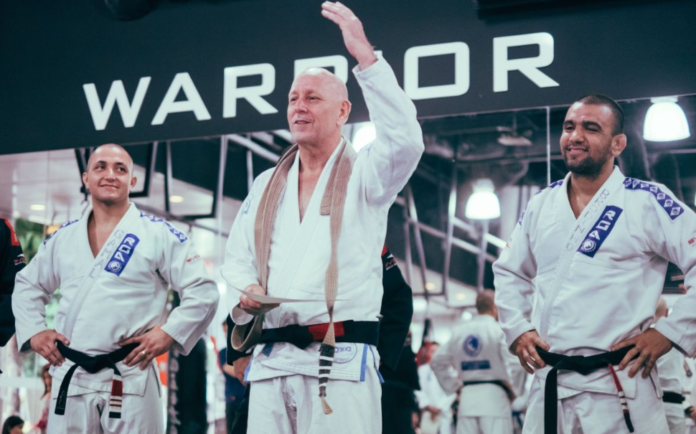
As a combat sports athlete or martial arts practitioner, you may have pondered the requirements needed to obtain a Jiu-Jitsu black belt. The answer is, there are a lot of them.
If you have just started with grappling or already have some experience in it, you may have a curiosity to know more about the path toward achieving a black belt in Jiu-Jitsu. This includes the requirements and expectations for each belt rank, as well as the benefits and challenges of reaching this prestigious status.
By the end of this article, you will have a deeper understanding and appreciation for this impressive martial art and its special system for recognizing individual achievements.
The BJJ Belt System: From White to Black
The BJJ ranking system is a strict and rigorous way of measuring progress and achievement in Brazilian Jiu-Jitsu. In fact, the adult system consists of five main colored belts: white, blue, purple, brown and black. Each belt has its own characteristics and expectations, such as the average time spent, the techniques learned, the skills developed and the challenges faced.
The table below summarizes the main features of each belt level:
| Belt | Average Time | Techniques | Skills | Challenges |
| White | 1-2 years | Basic positions, escapes, submissions | Relaxation, ego control, fundamentals | Getting used to BJJ, dealing with frustration, overcoming fear |
| Blue | 2-3 years | Guard passing, sweeps, transitions | Defence, strategy, timing | Improving consistency, avoiding injuries, finding your game |
| Purple | 4-5 years | Advanced positions, combinations, variations | Offence, creativity, adaptability | Facing higher belts, refining your game, teaching others |
| Brown | 5-6 years | Mastering positions, submissions and escapes | Pressure, control, confidence | Preparing for black belt, competing at high level, leading by example |
| Black | 10+ years | Developing your own style and philosophy | Wisdom, leadership, excellence | Maintaining motivation, staying updated, giving back to BJJ |
As you can see, the BJJ belt system is not linear; you will spend weeks or months on plateaus before being rewarded with a jump in ability. Sometimes it will even seem as if you are getting worse instead of better. But the plateau is actually your friend and is itself an indicator of progress. It is those who have the mental strength to keep going when they find themselves on a plateau that break-through to a higher level of ability.
The BJJ belt system also reflects the traditional values and principles of Jiu-Jitsu, such as loyalty, respect and humility. Each belt color conveys increased knowledge about the art and techniques used for self-defense.
The Journey to Black Belt: Requirements and Expectations
To attain the highly regarded level of mastery known as a black belt in Jiu-Jitsu, all practitioners must fulfill certain pre-established standards and anticipations.
Some of these requirements and expectations are:
- The minimum age of 19 years old. The IBJJF rules require that one must attain the age of 19 in order to be eligible for a Jiu-Jitsu black belt.
- The promotion by a black belt instructor with a minimum of 2 degrees. You can only be promoted to black belt by a black belt instructor who has at least two degrees on his or her own black belt.
- The demonstration of technical proficiency and knowledge in all aspects of BJJ. You must be able to perform all the positions, submissions and escapes with mastery and efficiency. An extensive comprehension of the fundamental concepts, principles and tactics of Jiu-Jitsu is also imperative.
- The adherence to the ethical principles and values of BJJ. You must respect your instructors, peers and opponents. You must also follow the rules and etiquette of Jiu-Jitsu, such as wearing a clean gi, bowing before entering or leaving the mat, and tapping when caught in a submission.
- The contribution to the development and promotion of BJJ. You must share your knowledge and experience with others, especially with lower belts, as well as visit seminars, competitions and social events.
These requirements and expectations are assessed and verified by instructors and peers who observe your performance and behavior on and off the mat.
Numerous variables can impact the duration of achieving the black belt rank in Jiu-Jitsu including:
- Frequency and quality of training. More time on the mats equals more progress which you can achieve in a lot less time compared to training scarcely. However, you should also train smartly and avoid overtraining or injuring yourself.
- Personal goals and motivations. The higher your level of passion and affection towards Jiu-Jitsu, the greater the probability of persisting through difficulties and achieving success.
- Physical and mental attributes. Having good health and fitness levels will simplify the process of acquiring new skills and mastering existing ones. Additionally, you should also work on your mental strength and resilience, which are essential for dealing with pressure and challenges.
- The availability and support of mentors and partners. The greater your access to proficient mentors and encouraging peers for training, the better it will be for enhancing your learning and progress. However, you should also be independent and responsible for your own progress.
How long does it take to get a black belt in Jiu-Jitsu?
On average, getting a black belt takes around 8 to 12 years of consistent training to achieve a black belt. It is crucial to understand that the duration mentioned is flexible and contingent on several factors such as personal commitment, frequency of instruction, innate abilities, and the specific requirements of the Jiu-Jitsu school or academy.
What is a black belt in Jiu-Jitsu?
A black belt in Jiu-Jitsu is the highest attainable rank within the belt system. A black belt holder has demonstrated proficiency in fundamental techniques, and advanced strategies, and possesses a deep understanding of the principles and philosophies of Jiu-Jitsu. It symbolizes the practitioner’s journey towards mastery and serves as a foundation for further growth and development in the martial art.
What percentage of people get a black belt in BJJ?
Obtaining a black belt in BJJ requires around ten years of dedicated training, and not everyone who starts the Jiu-Jitsu journey reaches this pinnacle. The percentage of individuals who achieve a black belt in BJJ is relatively low compared to those who start training BJJ.
While specific statistics may vary, it is estimated that very few people, approximately 1% to 2% of BJJ students, eventually earn a black belt. This reflects the demanding nature of the art and the significant commitment required to reach this level of proficiency.
How hard is it to get a black belt in Jiu-Jitsu?
Earning a black belt in Jiu-Jitsu is considered a significant accomplishment that requires a deep understanding of techniques, strategy, and the ability to apply them effectively under pressure (during live grappling with a resisting opponent). The difficulty level varies for each individual, depending on various factors such as previous experience, natural aptitude, training environment, and personal commitment.
Can you get a black belt in BJJ without competing?
Yes, it is possible to achieve a black belt in BJJ without competing in tournaments. While competition can provide valuable learning experiences and growth opportunities, it is not a mandatory requirement for belt progression.
The focus in Jiu-Jitsu is primarily on technical proficiency, knowledge, and practical application of techniques.
Many practitioners choose to prioritize their training and development without participating in formal competitions. Progression is often determined by the instructor’s evaluation of the practitioner’s skill level, knowledge, and overall growth.
Why does BJJ black belt take so long?
The time it takes to earn a BJJ black belt is primarily influenced by the complex nature of the art and the emphasis on practical proficiency. Jiu-Jitsu requires a deep understanding of leverage, body mechanics, timing, and strategy. Mastery of these elements takes time and consistent practice. The extensive curriculum, which includes a wide range of techniques and positions, contributes to the longer journey towards a black belt.
Additionally, the belt progression in Jiu-Jitsu is designed to ensure practitioners have a strong foundation at each level before advancing further, which further extends the time required.
Can you get a black belt in BJJ in 3 years?
It is possible, but it is far from probable for the regular BJJ pracitioner. The timeframe for earning a black belt is typically longer, and most BJJ students will require several additional years of dedicated training to reach this level. Three years may be sufficient for achieving a lower belt rank, such as blue or purple belt, depending on an individual’s commitment, talent, and training frequency.
It’s important to remember that earning a black belt in Jiu-Jitsu is a result of sustained dedication.
Do BJJ black belts make money?
While some BJJ black belts may generate income through teaching, coaching, and competing professionally, it is important to note that not all black belts make a significant amount of money solely from their rank in Jiu-Jitsu.
The ability to monetize one’s black belt level largely depends on factors such as entrepreneurial skills, teaching opportunities, affiliation with reputable schools or academies, and personal branding within the martial arts community.
Many black belts supplement their income through other means, such as running their own academies, providing seminars, or pursuing related ventures.
How many years for each Jiu-Jitsu belt?
On average, the timeframes for each belt in the BJJ belt ranking system are as follows:
- White Belt: The introductory belt, typically held for 1 to 2 years.
- Blue Belt: The first major belt promotion, achieved after around 2 to 4 years of consistent training.
- Purple Belt: An intermediate belt, generally earned after 4 to 6 years of Jiu-Jitsu training.
- Brown Belt: A high-level belt attained after approximately 6 to 8 years of dedicated practice.
- Black Belt: The highest attainable rank, usually acquired after 8 to 12 years or more of consistent training and demonstrating exceptional proficiency in Jiu-Jitsu.
These timeframes are not fixed and may vary based on individual progression and the specific criteria set by the Jiu-Jitsu school or organization.
What is the hardest belt to get in BJJ?
According to the majority opinion in the Jiu-Jitsu community, obtaining a black belt in BJJ is considered the most challenging accomplishment. It represents the pinnacle of mastery and requires extensive knowledge, technical proficiency, and a deep understanding of the art.
The path to the black belt requires dedication, perseverance, and growth through physical and mental challenges. While each belt presents its unique difficulties, the black belt symbolizes the highest level of skill and expertise in Jiu-Jitsu.
How many hours does it take to become a BJJ black belt?
The amount of time it takes to achieve a black belt in BJJ can differ greatly and depends on various elements, such as one’s commitment, training frequency, inherent ability, and promotion philosophy of your academy.
Roughly 1,000 to 1,500 hours of hard, focused training should be enough to earn a black belt in Jiu-Jitsu. This is, however, nothing more than an estimation, and the actual time invested can differ for each practitioner.
The journey towards a black belt is measured not just in hours but in years of dedicated practice and continuous improvement.
What Can I Do to Get a BJJ Black Belt Faster?
While the timeframe to earn a BJJ black belt is a result of consistent training and dedication, there are several strategies you can adopt to potentially expedite your progress:
- Train consistently: Regular and frequent training sessions are crucial for skill development and progress.
- Seek quality instruction: Train under experienced instructors who can provide proper guidance and technical expertise.
- Set specific goals: Define short-term and long-term goals to stay motivated and focused on your journey.
- Supplement your training: Attend seminars, workshops, and competitions to gain additional knowledge and experience.
- Embrace a growth mindset: Stay open to learning, adapt to new techniques, and embrace challenges as opportunities for growth.
- Train with a variety of partners: Expose yourself to different body types, skill levels, and styles to enhance your adaptability and versatility.
- Focus on fundamental techniques: Build a solid foundation by mastering fundamental techniques and principles.
- Study and review: Supplement your training with studying instructional materials, books, and videos to deepen your understanding.
- Take care of your body: Maintain proper nutrition, rest, and recovery to prevent injuries and ensure optimal performance.
- Stay committed: Understand that the journey to a black belt requires long-term commitment and perseverance. Stay dedicated and enjoy the process.
What Factors Will Make Me Wait Longer to Get a Black Belt in Jiu-Jitsu?
Several factors can contribute to a longer journey towards earning a black belt in BJJ:
- Training frequency: Inconsistent training or limited training opportunities can slow down progress.
- Skill level and aptitude: Each individual progresses at their own pace based on their natural abilities and learning curve.
- Previous grappling experience: Individuals with prior experience in many other martial arts or grappling (Judo black belt, for example) may progress faster due to transferable skills.
- Training environment: Access to quality instruction, training partners, and a supportive community can impact progression.
- Competition participation: Engaging in tournaments and testing your skills can enhance growth and progression.
- Instructor’s criteria: Each instructor or Jiu-Jitsu school may have specific requirements and expectations for belt promotion.
- Injury or time off: Extended breaks due to injuries or other personal commitments can delay progress.
- Personal commitment and dedication: Lack of consistent effort, motivation, or focus on skill development can prolong the journey.
It’s important to remember that everyone’s path is unique, and the journey towards a black belt should be embraced at your own pace, focusing on continuous improvement and growth.
Should You Really Worry About How Long It Takes to Get a Black Belt in BJJ?
The time it takes to achieve a black belt in Brazilian Jiu-Jitsu should not be a primary concern or a source of worry. Instead, focus on the journey, the learning process, and the personal growth that comes with consistent training.
Jiu-Jitsu is a lifelong pursuit, and each belt rank represents a significant milestone in your progress. The black belt is the culmination of years of dedicated practice, perseverance, and skill development. By focusing on the present moment, enjoying the learning process, and embracing the challenges along the way, you will develop the skills and mindset necessary to earn your black belt in due time.
Remember, the belt is a reflection of your journey, not just a destination.
Conclusion
Achieving the status of a BJJ black belt demands a substantial investment of time, energy, and commitment in a challenging yet fulfilling expedition. The undertaking at hand is neither effortless nor uncomplicated, but rather intricate and demanding.
To achieve a BJJ black belt, one must commit to consistent and dedicated training, seek knowledge from instructors and mentors, challenge oneself through competition, conduct diligent research, impart teachings to others, and derive pleasure from the practice of Jiu-Jitsu.
Benjamin Kunzle, Temporary Paralyzed Grappler, Gets Black Belt From Cyborg
BJJ Black Belt Actor Sean Patrick Flanery: Go Back To Basics
Blind BJJ Black Belt: I Never Quit, It Took 7 Years For My First Title


![Darce Choke Encyclopedia – Origins, Mechanics and Variations [2025] BJJ, choke, Brabo, BJJ Darce Choke, D'arce Choke, Darce BJJ Choke](https://bjj-world.com/wp-content/uploads/2017/11/JungPoirierLeeYahoo-218x150.jpg)







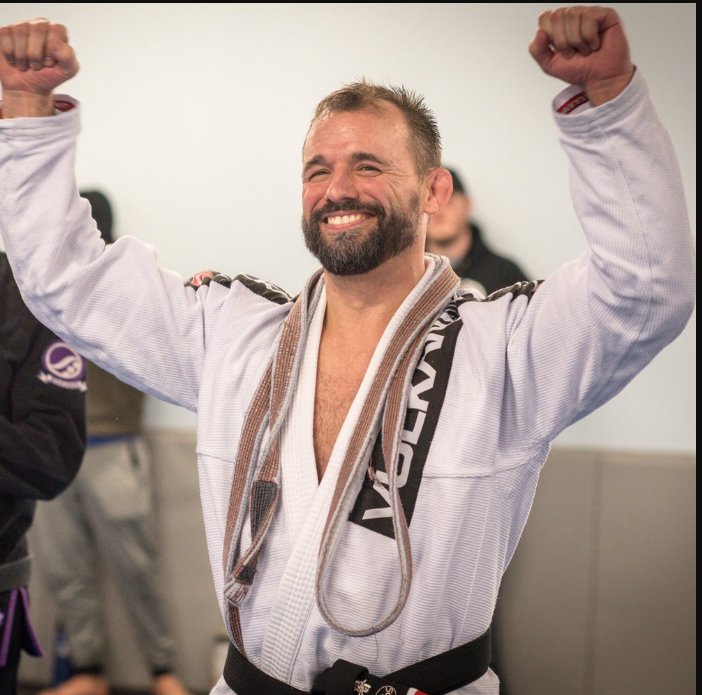
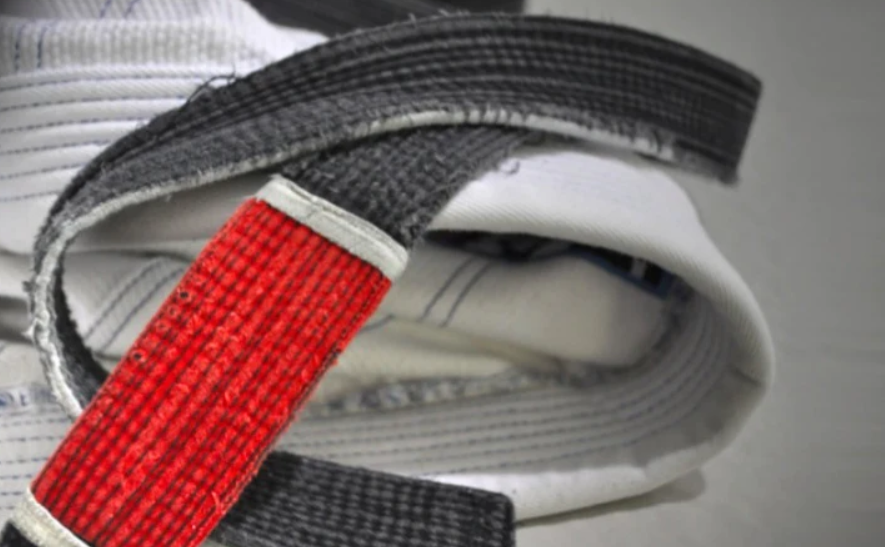
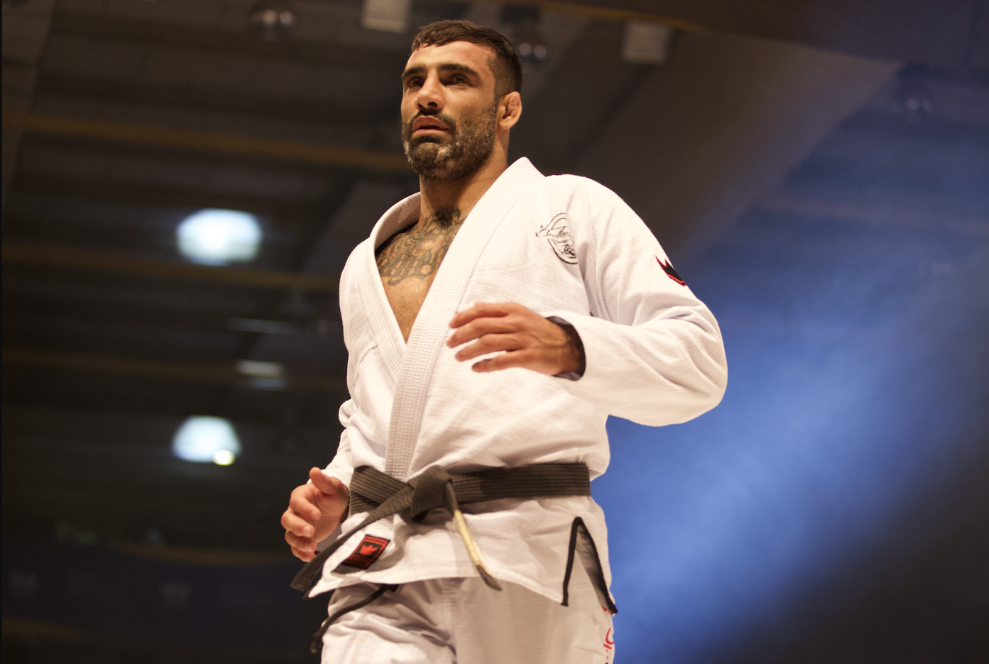
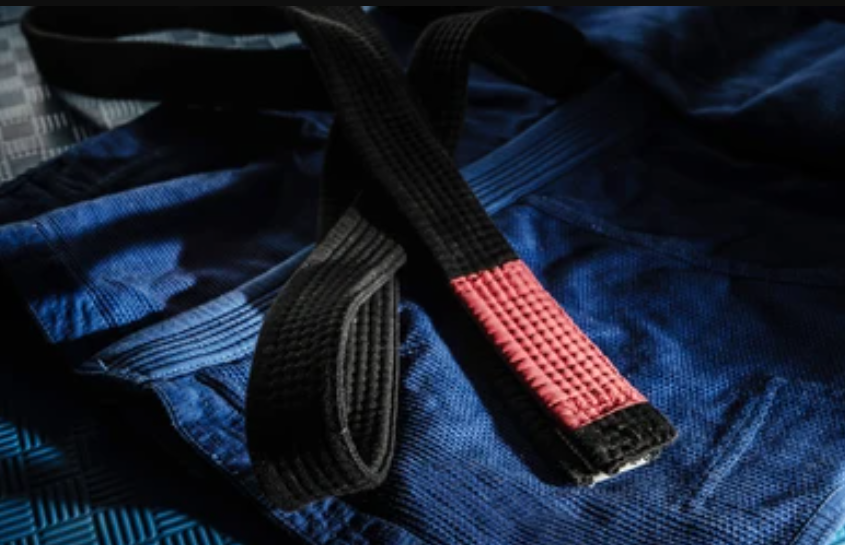
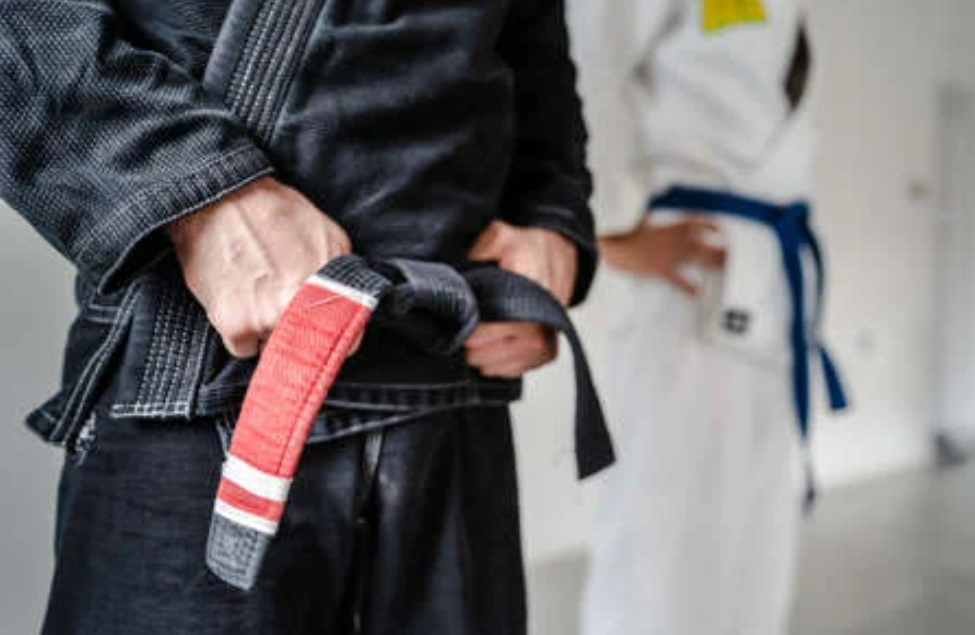




![Ultimate Study Tomoe Nage Neil Adams BJJ DVD Review [2025] Ultimate Study Tomoe Nage Neil Adams BJJ DVD Review](https://bjj-world.com/wp-content/uploads/2025/04/tomoe-nage-neil-adams-bjj-dvd-review-218x150.png)

![[VIDEO] Ex-UFC Champ Aljamain Sterling Gets Choked Out Cold on Russian TUF-Style Show VIDEO - Aljamain Sterling Gets Choked Out Cold on Russian Reality Show](https://bjj-world.com/wp-content/uploads/2025/04/LEG-GRABS-2-218x150.png)


![Jeff Glover DVD Bundle Review: Chokin’ Around With Uncle Jeff [2024] Jeff Glover DVD Bundle Review: Chokin' Around With Uncle Jeff](https://bjj-world.com/wp-content/uploads/2024/10/jeff-glover-dvd-bundle-review-chokin-around-100x70.png)
![Jeff Glover Deep Half Revolution DVD Bundle Review [2024] Jeff Glover Deep Half Revolution DVD Bundle Review](https://bjj-world.com/wp-content/uploads/2024/10/jeff-glover-deep-half-revolution-dvd-bundle-review-100x70.png)

![Eoghan O’Flanagan Bundle Down Right Sloppy Jiu-Jitsu Review [2024] Eoghan O'Flanagan Bundle Down Right Sloppy Jiu-Jitsu Review 2024](https://bjj-world.com/wp-content/uploads/2024/09/down-right-sloppy-jiu-jitsu-eoghan-oflanagan-bundle-100x70.png)

![Giancarlo Bodoni DVD Bundle Essential Connections Full Review [2024] Giancarlo Bodoni DVD Bundle Essential Connections Full Review](https://bjj-world.com/wp-content/uploads/2024/09/giancarlo-bodoni-dvd-bundle-essential-connections-100x70.png)
![Tricks for Unstoppable Takedowns Georges St Pierre DVD Review [2024] Tricks for Unstoppable Takedowns Georges St Pierre DVD Review](https://bjj-world.com/wp-content/uploads/2024/12/unstoppable-takedowns-georges-st-pierre-dvd-review-100x70.png)
![Ginastica Natural Alvaro Romano DVD Review [2024] Ginastica Natural Alvaro Romano DVD Review](https://bjj-world.com/wp-content/uploads/2024/12/ginastica-natural-alvaro-romano-dvd-review-100x70.png)
![Mastering Control From Top Position Trent Hidlay DVD Review [2024] Mastering Control From Top Position Trent Hidlay DVD Review](https://bjj-world.com/wp-content/uploads/2024/11/control-from-top-position-trent-hidlay-dvd-review-100x70.png)
![Effectively Passing The Guard Luke Griffith DVD Review [2025] Effectively Passing The Guard Luke Griffith DVD Review](https://bjj-world.com/wp-content/uploads/2025/01/passing-the-guard-luke-griffith-dvd-review-100x70.png)

![Countering Triangles And Omoplatas Adam Mazin DVD Review [2024] Countering Triangles And Omoplatas Adam Mazin DVD Review](https://bjj-world.com/wp-content/uploads/2024/10/countering-triangles-and-omoplatas-adam-mazin-dvd-REVIEW-100x70.png)
![Shotgun Aoki Locks Mateusz Szczecinski DVD Review [2025] Shotgun Aoki Locks Mateusz Szczecinski DVD Review](https://bjj-world.com/wp-content/uploads/2025/03/shotgun-aoki-locks-mateusz-szczecinski-dvd-review-100x70.png)
![Shoulder Lock Mastery Zach Green DVD Review [2025] Shoulder Lock Mastery Zach Green DVD Review](https://bjj-world.com/wp-content/uploads/2024/12/shoulder-lock-mastery-zach-green-dvd-review-100x70.png)
![Master Scissor Sweep Ryan Scialoia DVD Review [2025] Master Scissor Sweep Ryan Scialoia DVD Review](https://bjj-world.com/wp-content/uploads/2024/12/scissor-sweep-ryan-scialoia-dvd-review-100x70.png)

![I Got Your Back Jake Straus DVD Review [2025] I Got Your Back Jake Straus DVD Review](https://bjj-world.com/wp-content/uploads/2025/03/i-got-your-back-jake-straus-dvd-review-100x70.png)

![No-Gi Pressure Mastery JT Torres DVD Review [2024] No-Gi Pressure Mastery JT Torres DVD Review](https://bjj-world.com/wp-content/uploads/2024/10/no-gi-pressure-mastery-jt-torres-dvd-review-100x70.png)


![Old School BJJ Ricardo Cavalcanti Fundamentals DVD Review [2024] Old School BJJ Ricardo Cavalcanti Fundamentals DVD Review](https://bjj-world.com/wp-content/uploads/2024/09/old-school-bjj-ricardo-cavalcanti-dvd-preview-100x70.png)
![No-Gi Grapplers Guide To Front Headlock Joel Bane DVD Review [2025] No-Gi Grapplers Guide To Front Headlock Joel Bane DVD Review](https://bjj-world.com/wp-content/uploads/2025/03/no-gi-front-headlock-joel-bane-dvd-review-100x70.png)


![Baby Shark Guard System Diogo Reis DVD Review [2025] Baby Shark Guard System Diogo Reis DVD Review](https://bjj-world.com/wp-content/uploads/2025/02/baby-shark-guard-system-diogo-reis-dvd-review-100x70.png)
![Woj Lock the World Chris Wojcik Ankle Locks DVD Review [2024] Woj Lock the World Chris Wojcik Ankle Locks DVD Review](https://bjj-world.com/wp-content/uploads/2024/12/woj-lock-the-world-chris-wojcik-dvd-review-100x70.png)
![Dynamic De La Riva Guard Otavio Sousa DVD Review [2025] Dynamic De La Riva Guard Otavio Sousa DVD Review](https://bjj-world.com/wp-content/uploads/2025/02/dynamic-de-la-riva-guard-otavio-sousa-dvd-review-100x70.png)
